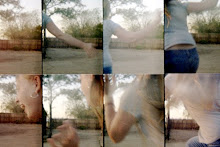In the news-- the "island-mountain-glacier" known as Eyjafjallajökull has been active in Iceland this month for the first time since 1823. It is one of the smaller glaciers of Iceland, situated to the south of the country, and its 39-mile-square icecap covers a volcano whose summit is 5,466 feet. The volcano's crater is at 1.9-2.5 miles in diameter and has erupted twice in 2010--once on March 20th and once on April 14th. The volcanic system of Iceland runs directly through the middle of the country from southeast to northwest and has much to do with the beautiful and dramatic landscape of the region. Seismic activity in the volcano area was first detected in December of 2009, during which thousands of small earthquakes occurred. Activity increased up until the first eruption on the twentieth of March in a popular nearby hiking region known as Fimmvörðuháls. The eruption was relatively small in scale up until the second eruption on the fourteenth of April, which was estimated to be 10-20 times larger than the initial one. The eruptions caused quite a bit of air travel disruption across northern Europe, along with some rare electrical storms. Scientists fear that tremors from Eyjafjallajökull could set off an even larger eruption at the neighbouring Katla volcano about 12 miles away. Katla followed Eyjafjallajökull the last three times it erupted, and since it is overdue on its typical schedule of awakening every 80 years or so, there is good reason for the Icelanders to be wary. The two volcanoes are thought to be connected by a network of magma channels, and Katla happens to be beneath Myrdalsjökull, one of Iceland's largest glaciers. Katla has shown no signs of seismic activity so far, but should it do so, it would cause an even more dangerous eruption. Residents would have to evacuate incredibly quickly to avoid flash floods that would inevitably tear down the mountain, along with burning gas, molten earth, and ash that would shoot to extremely high altitudes.
The name "Eyjafjallajökull" is very literal one, made up of the words "eyja" (island), "fjall" (fell or mountain), and "jökull" (glacier). The whole Icelandic language tends to be constructed similarly, such as the word for "library" translating literally to "book house."

No comments:
Post a Comment